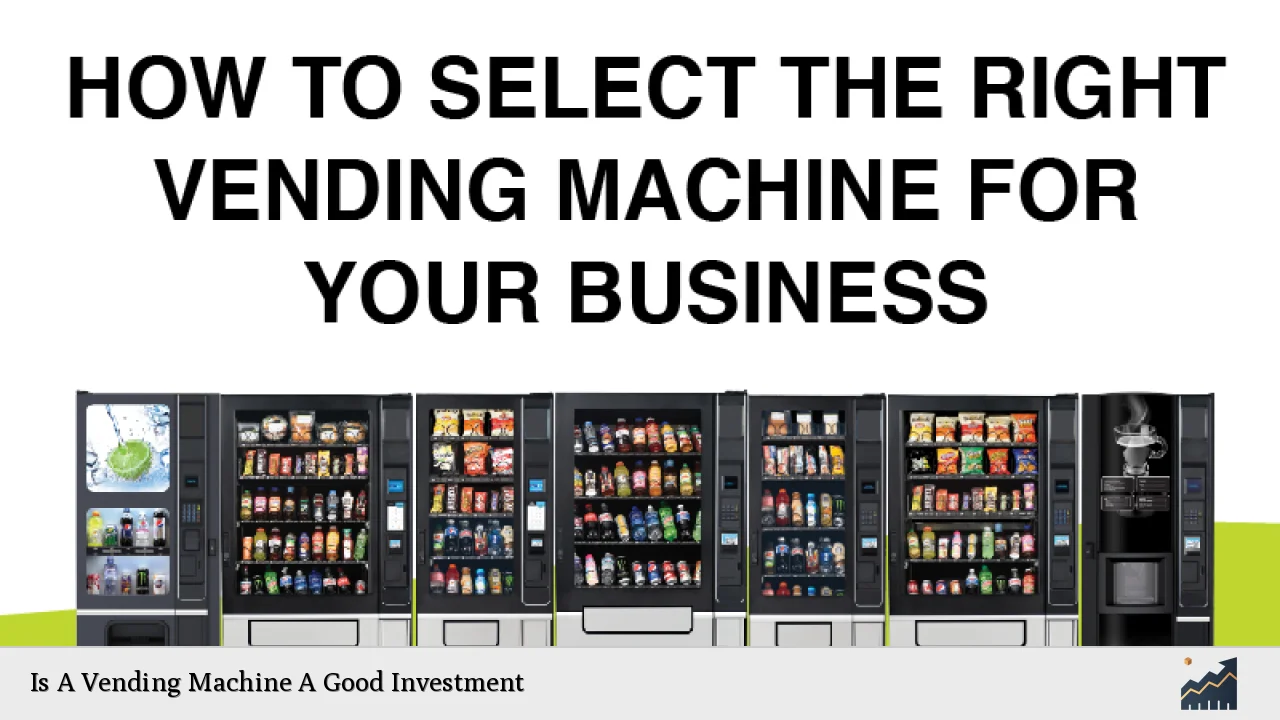Investing in vending machines has gained popularity as a viable business opportunity due to their potential for generating passive income with relatively low overhead costs. The vending machine industry is evolving, driven by technological advancements and changing consumer preferences. This article delves into the profitability of vending machines, exploring market trends, implementation strategies, risks, regulatory considerations, and future outlooks to provide a comprehensive analysis for potential investors.
| Key Concept | Description/Impact |
|---|---|
| Market Size | The global vending machine market is expected to reach USD 21.57 billion in 2024, growing at a CAGR of 5.18% to USD 27.77 billion by 2029. |
| Average Earnings | A single vending machine can generate approximately AUD 700 per month, translating to about AUD 8,400 annually. |
| Return on Investment (ROI) | |
| Operational Costs | Ongoing costs include maintenance, restocking, insurance, and utilities which can significantly affect profitability. |
| Technological Integration | Modern vending machines offer cashless payment options and touchless interfaces, enhancing user experience and sales potential. |
Market Analysis and Trends
The vending machine market is experiencing significant growth due to several factors:
- Technological Advancements: The integration of smart technologies such as IoT and cashless payment systems has transformed traditional vending machines into more efficient retail solutions. These advancements allow for real-time inventory management and enhanced customer interaction.
- Consumer Preferences: There is a growing demand for healthier snack options and convenience-driven purchasing experiences. Vending machines are adapting by offering diverse product ranges that cater to health-conscious consumers.
- Market Growth: The global vending machine market was valued at approximately USD 11.13 billion in 2023 and is projected to reach USD 45.06 billion by 2034, reflecting a robust CAGR of about 14.9% from 2024 to 2034. North America remains the largest market, while the Asia-Pacific region is noted as the fastest-growing area due to urbanization and technological adoption.
Implementation Strategies
To successfully invest in vending machines, consider the following strategies:
- Location Selection: The profitability of a vending machine heavily depends on its location. High foot traffic areas such as schools, offices, gyms, and public transport hubs are ideal spots.
- Product Offering: Tailoring the product selection to meet local demand is crucial. Offering healthy snacks or popular beverages can increase sales.
- Machine Type: Investing in modern machines that accept multiple payment methods (credit cards, mobile payments) can enhance customer convenience and boost sales.
- Maintenance Schedule: Regular maintenance ensures machines operate efficiently and reduces downtime. Establishing a routine for restocking and servicing is essential for maximizing profitability.
Risk Considerations
While vending machines can be profitable, potential investors should be aware of various risks:
- Initial Investment Costs: The upfront cost of purchasing or leasing machines can be substantial. Investors need to account for these costs when calculating potential ROI.
- Operational Challenges: Issues such as machine malfunctions or stock shortages can lead to lost sales. Having a contingency plan for repairs and restocking is vital.
- Market Competition: As the industry grows, competition increases. Differentiating your offering through unique products or superior service can help maintain a competitive edge.
- Regulatory Compliance: Depending on the region, there may be specific regulations regarding food safety and vending operations that must be adhered to.
Regulatory Aspects
Investors must navigate various regulatory frameworks when operating vending machines:
- Health Regulations: Compliance with local health codes regarding food safety is paramount. This includes proper storage conditions for perishable items.
- Licensing Requirements: Many jurisdictions require vendors to obtain specific licenses or permits before operating vending machines.
- Tax Obligations: Understanding tax implications related to sales from vending operations is essential for maintaining compliance with local tax authorities.
Future Outlook
The future of the vending machine industry appears promising:
- Continued Growth: As urban lifestyles continue to evolve, the demand for convenient access to food and beverages will likely drive further growth in the vending machine sector.
- Technological Innovations: Advancements in technology will continue to enhance operational efficiency and customer engagement through features like AI-driven inventory management and personalized marketing strategies.
- Sustainability Trends: Increasing consumer awareness around sustainability may lead operators to adopt eco-friendly practices, such as using biodegradable packaging or energy-efficient machines.
Frequently Asked Questions About Is A Vending Machine A Good Investment
- What are the average earnings from a vending machine?
A single vending machine typically generates around AUD 700 per month or AUD 8,400 annually. - How long does it take to see a return on investment?
Investors can expect a return on their investment within 12 to 18 months. - What factors influence the profitability of a vending machine?
The location of the machine, product offerings, operational efficiency, and maintenance practices significantly impact profitability. - Are there any risks associated with investing in vending machines?
Yes, risks include high initial costs, operational challenges like maintenance issues, market competition, and regulatory compliance. - What types of products should I offer in my vending machine?
Offering a mix of healthy snacks and popular beverages tailored to your target audience can enhance sales. - How important is technology in modern vending machines?
Technology plays a critical role in improving user experience through cashless payments and real-time inventory management. - Do I need any special licenses to operate a vending machine?
Yes, licensing requirements vary by location; it’s essential to check local regulations before starting your business. - What are the current trends in the vending machine industry?
The industry is seeing trends toward healthier product offerings, cashless payments, smart technology integration, and sustainability practices.
In conclusion, investing in vending machines presents an attractive opportunity for individuals seeking passive income streams with manageable risks. By understanding market dynamics, implementing effective strategies, addressing regulatory requirements, and remaining adaptable to future trends, investors can position themselves for success in this evolving industry.

